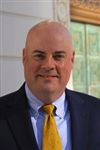Learn how to organize and present your closing argument to maximize its effect on the jury.
This course reviews the right tactics and strategies to use when crafting and delivering a great closing argument. Explore cutting through a lot of conventional but wrong wisdom. Tour an overall approach to shaping the closing by telling your client’s case story verbally and visually. From earning and keeping juror attention to speaking and stagecraft techniques that create moments of impact, from language to use and words to avoid, this material will elevate your understanding of how to make the closing argument right.
Agenda
- Storytelling in a Nutshell
- The Five Rights of Closing Arguments
- The 10,000 Wrongs of Closing Arguments
- Visuals and Slides: Their Necessity; Breaking the Powerpoint® Defaults, and Creating Good Visuals
- Jury Instructions: The Right Role in Your Closing
- Jury Verdict Form: Essential yet Largely Ignored
Speakers

Richard P. Matthews,
Juryology- Principal trial consultant of Juryology, located in San Francisco
- Combines research with psychology with artistic craft to get the best results from jurors
- Expertise includes separating jury issues from the legal issues; crafting the themes and frames that will shape juror perception of a case; writing openings and closings like an actual human actually speaks to other actual humans; witness preparation; and all things related to jury selection from juror questionnaires and voir dire questions to exercising cause and peremptory challenges
- Innovated the use of focus group results at mediations and in negotiations to achieve better settlements in a shorter time than clients had experienced without them
- Achieved successful results for both plaintiffs and defendants in the civil world, and prosecutors and defendants in criminal cases
- Appeared on national television and in major publications offering commentary on high profile trials
- Serves on the California Bar’s Litigation Section’s Committee for comment on proposed revisions to California’s standard jury instructions, lending his juror expertise to improving the understandability and clarity of jury instructions
- J.D. degree, University of Oregon School of Law
- Can be contacted at Juryology.com, @Juryology, LinkedIn® Juryology, or Rich@Juryology.com
Who Should Attend
This program is primarily designed for attorneys. Other legal professionals may also benefit from attending.









